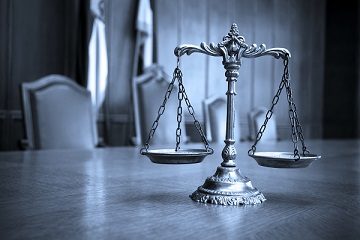Tax Discharge Attorney Connecticut

It’s common knowledge that many people who are in debt use a Chapter 13 bankruptcy to buy time to pay off their tax debts. There are tax debts that can be discharged in a Chapter 7 bankruptcy. However, there are strict requirements that you must meet.
A chapter 7 bankruptcy is normally used for people who have unsecured debts.
Unsecured debts usually include medical bills and credit card debts. Unsecured means no collateral was provided to obtain the loan. Secured debts are debts where the you agree that if you fail to pay the loan, the creditor can seize the item bought. A common example of a secured debt is when you obtain a loan to buy a house. You agree that if you don’t pay the mortgage loan, that the creditor can repossess your home. Another common example is when you use a loan to buy a car. If you fail to pay the car loan, the creditor can repossess your car.
If you owe taxes, you can discharge the tax debt only if all of the following conditions are met:
The debt is from federal income tax
State income taxes do need to be paid.
The taxes are for income
If you own payroll taxes or owe taxes due to fraud, those taxes must be paid. They can’t be discharged in the bankruptcy. This means if you filed a fraudulent return or willfully tried to evade paying taxes, you will have to pay the income tax – even in bankruptcy. The same holds true if you filed the returns under a false Social Security number.
The federal income tax debt must be at least three years old
This means you can’t use the bankruptcy laws to avoid paying taxes on your most recent tax years. The three-year time frame dates back to when the taxes were originally due.
You must have filed a tax return for the years that you are seeking to discharge the debt
This means you can’t refuse to file a return and then hope the IRS doesn’t do anything. For the purposes of filing a tax return, the bankruptcy court will look to see that you filed the return at least two years before the filing date of your bankruptcy. If you filed for a tax extension, then filed your return within the extension period, that’s considered a timely return. Some bankruptcy courts may even consider a return timely filed beyond the extension period – provided it was filed at least two years before the bankruptcy filing date.
If you meet the 240-day rule
This means that the Internal Revenue Services must have assessed the amount you owe at least 240 days (about eight months) before the date of the bankruptcy petition. The IRS files an assessment within a few months from the date you file your return. If you negotiated a settlement of your tax duty and the IRS suspended collection actions during the negotiation, the 240-day time frame may be even longer.
What happens if there is a federal tax lien?
The ability to discharge a tax lien also depends on whether there is a federal tax lien that has been recorded against you.
This means that even if your taxes are more than three years old, you filed your returns within the two-year time frame, and you also meet the 240-day threshold – you still can’t discharge your debts if the IRS recorded a tax lien on your property before the date you filed your petition.
What does this mean?
It essentially means that your home will become security for your debt. You will be able to discharge your personal obligation to pay the loan. The IRS won’t be able to access your bank account or your wages. The problem is that when you sell your home, the taxes will be paid from any sales proceeds before you will be entitled to any money. If you rent, then the federal tax lien essentially has little effect because there’s nothing to sell.
Using a Chapter 13 bankruptcy to pay your taxes
The more practical solution for many debtors who find that they can’t pay their federal income tax obligations is to file chapter 13 bankruptcy. The Chapter 13 bankruptcy gives you time to pay off the arrears. Arrears are the amount you owe on your prior taxes. You still must file timely tax returns and pay the amounts due for each year after you file your bankruptcy petition.
Chapter 13 can be used for federal income taxes and for state income taxes
The good news is that there is no three-year time limit. If you failed to pay $7,500 on your two tax returns for each of the past two years, you can pay out the total due, $15,000, by filing a Chapter 13 plan. The plan requires that you pay the arrears over a three to five-year time period. During those three to five years, you must file and pay your new income taxes as they become due.
Extensions may be allowed
It’s important to review your tax payment obligations with an experienced bankruptcy attorney. If you don’t owe too much, you may also be able to enter into an installment plan with the IRS instead of declaring bankruptcy. Your bankruptcy attorney will be able to properly advise you on your options.
Contact us today to learn more.
